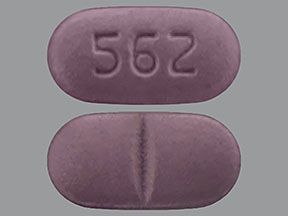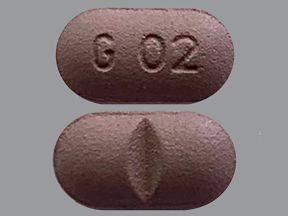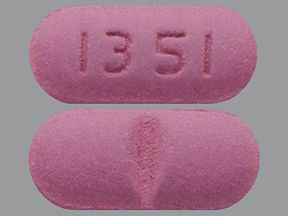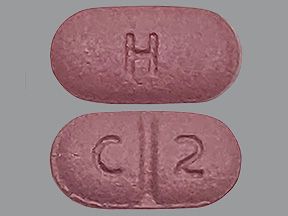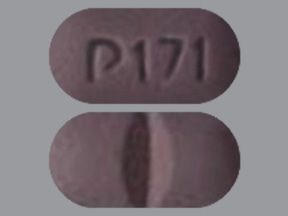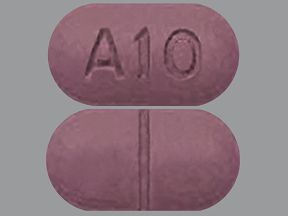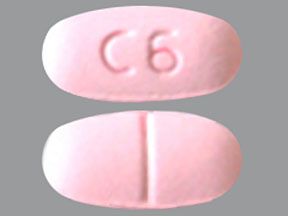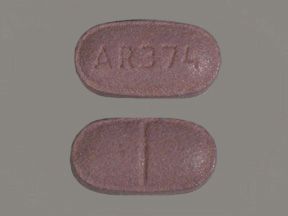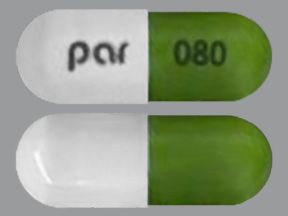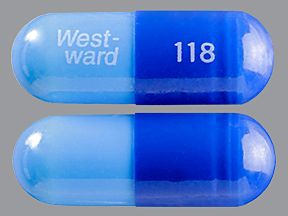Colchicine oral tablet is a generic prescription medication. It’s prescribed for the following uses:
- helping prevent and treating flares of gout in adults and children ages 16 years and older
- treating familial Mediterranean fever in adults and children ages 4 years and older
Drug details
Colchicine comes as an oral tablet that you swallow. It’s available in one strength: 0.6 milligrams (mg).
Brand-name versions
Colchicine oral tablet also comes in the brand name version Colcrys.
Other brand-name versions of colchicine include Mitigare and Gloperba. However, these come in different dosage forms. Generic versions of these brand-name dosage forms aren’t currently available.
Colchicine is a generic drug. A generic drug is an exact copy of the active drug in a brand-name medication. Colcrys is the brand-name medication that colchicine oral tablet is based on. A generic is considered to be as safe and effective as the original drug. Generics tend to cost less than brand-name drugs.
If you’re interested in taking Colcrys instead of colchicine, talk with your doctor. They can tell you whether Colcrys comes in forms and strengths that can be used for your condition. If you have insurance, you’ll also need to check whether your plan will cover Colcrys.
To learn more about how generics compare with brand-name drugs, see this article.
The colchicine dosage your doctor prescribes will depend on several factors. These include:
- the type and severity of the condition you’re taking colchicine to treat
- your age
- other medical conditions you may have
- your kidney and liver function
- other medications you may take
Colchicine strength: 0.6 mg
Colchicine oral tablet is available in one strength: 0.6 milligrams (mg).
Dosage details
For familial Mediterranean fever (FMF) and to help prevent flares of gout, your doctor will typically start you taking a low dosage. Then they’ll adjust it over time to reach the amount that’s right for you. Your doctor will ultimately prescribe the smallest dosage that provides the desired effect.
The following information describes dosages that are commonly used or recommended. However, be sure to take the dosage your doctor prescribes for you. Your doctor will determine the best dosage to fit your needs.
Dosage for prevention of gout
Here’s colchicine dosage information for prevention of gout.
| Colchicine for prevention of gout | |
| Form | oral tablet |
| Strength | 0.6 mg |
| Dose | 0.6 mg |
| How often | once or twice a day |
| Administered by | self |
Dosage for treatment of gout
Here’s colchicine dosage information for treatment of a gout flare.
| Colchicine for treatment of gout | |
| Form | oral tablet |
| Strength | 0.6 mg |
| Dosage | 1.2 mg (two tablets) at the first sign of a flare,* followed by 0.6 mg (one tablet) 1 hour later |
| Administered by | self |
* See “Colchicine oral tablet uses” below for details of symptoms of a gout flare.
Dosage for FMF
Here’s colchicine dosage information for FMF in adults.
| Colchicine for FMF | |
| Form | oral tablet |
| Strength | 0.6 mg |
| Daily dose | 1.2 mg to 2.4 mg |
| How often | a daily dose can be taken once a day, or it can be split and taken twice a day (for example, 1.2 mg once per day or 0.6 mg twice per day) |
Children’s dosage
Colchicine can be used in children ages 16 years and older to treat and help prevent gout. The dosage for this use is the same as for adults. For details, see above.
Colchicine is used in children ages 4 years and older for FMF. The dosage for this use is based on the child’s age. For details, see below.
Dosage for FMF
Here’s colchicine dosage information for FMF.
| Colchicine for FMF | |
| Form | oral tablet |
| Strength | 0.6 mg |
| Daily dose | • 4 years to 6 years: 0.3 mg to 1.8 mg • 6 years to 12 years: 0.9 mg to 1.8 mg • older than 12 years: 1.2 mg to 2.4 mg |
| How often | a daily dose can be taken once a day, or it can be split and taken twice a day (for example, 1.2 mg once per day or 0.6 mg twice per day) |
| Administered by | self |
What if I miss a dose?
What to do if you miss a dose depends on the reason you’ve been prescribed colchicine.
- If you’re taking colchicine to treat a gout flare and you’re not also taking it to help prevent gout, take the missed dose as soon as possible.
- If you’re taking colchicine to treat a gout flare and you also take it regularly to help prevent gout, take the missed dose as soon as possible, wait 12 hours, then continue your regular dosing schedule.
- If you’re taking colchicine to help prevent flares of gout or episodes of FMF, take the missed dose as soon as possible, then continue with your regular dosing schedule. However, if it’s nearly time for your next scheduled dose, skip the missed dose and take your next scheduled dose. Do not take two doses together or extra doses to make up for a missed dose.
To help make sure that you don’t miss a dose, try using a medication reminder. This can include setting an alarm or using a timer. You could also download a reminder app on your phone.
Will I need to take this drug long term?
It depends on the reason for taking it. For gout, you may take colchicine on a short-term or long-term basis.
For FMF, colchicine is meant to be a long-term treatment. If you and your doctor determine that colchicine is safe and effective for you, you’ll likely take it long term.
Colchicine can cause mild or serious side effects (also known as adverse effects). The following lists contain some of the key side effects that may occur while taking colchicine. These lists do not include all possible side effects.
For more information about the possible side effects of colchicine, talk with your doctor or pharmacist. They can give you tips on how to manage any side effects that may be concerning or bothersome.
Note: The Food and Drug Administration (FDA) tracks side effects of drugs it has approved. If you’d like to notify the FDA about a side effect you’ve had with colchicine, you can do so through MedWatch.
Mild side effects
Below is a partial list of mild side effects of colchicine. To learn about other mild side effects, talk with your doctor or pharmacist, or view the drug’s prescribing information.
Mild side effects of colchicine can include:
- diarrhea
- nausea
- vomiting
- abdominal pain or cramps
- sore throat
- mild allergic reaction*
Most of these side effects may go away within a few days to a couple of weeks. However, if they become more severe or don’t go away, talk with your doctor or pharmacist.
* For more information about allergic reaction and colchicine, see “Allergic reaction” below.
Serious side effects
Serious side effects from colchicine aren’t common, but they can occur. Call your doctor right away if you have serious side effects. Call 911 or your local emergency number if your symptoms feel life threatening or if you think you’re having a medical emergency.
Serious side effects can include:
- low numbers of red blood cells, white blood cells, or platelets (blood cells that help clotting)
- nerve damage, causing numbness or tingling in your fingers or toes
- rhabdomyolysis (breakdown of muscle cells that can lead to kidney problems)
- severe allergic reaction*
* For details about allergic reaction and colchicine, see “Allergic reaction” below.
ALLERGIC REACTIONAs with most drugs, some people can have an allergic reaction after taking colchicine. This side effect wasn’t reported in clinical trials of this drug but can still occur.
Symptoms of a mild allergic reaction can include:
A more severe allergic reaction is rare but possible. Symptoms of a severe allergic reaction can include:
- swelling under your skin, typically in your eyelids, lips, hands, or feet
- swelling of your tongue, mouth, or throat
- trouble breathing
Call your doctor right away if you have an allergic reaction to colchicine, as the reaction could become severe. Call 911 or your local emergency number if your symptoms feel life threatening or if you think you’re having a medical emergency.
The Food and Drug Administration (FDA) approves prescription drugs such as colchicine to treat certain conditions. Colchicine may also be used off-label for other conditions. Off-label drug use is when an FDA-approved drug is prescribed for a purpose other than what it’s approved for.
Colchicine for gout
Colchicine oral tablet is FDA-approved to treat and help prevent gout flares in adults and adolescents ages 16 years and older.
Gout explained
Gout is a form of arthritis that can develop if you have too much uric acid in your body. The uric acid forms crystals in certain joints, especially the base of the big toe. Joints in the forefoot, ankles, knees, fingers, wrists, and elbows may also be affected.
The crystals irritate the joint, causing intense inflammation and pain. This is known as a gout flare or attack.
A gout flare can cause the following symptoms in a joint:
- sudden, intense pain
- swelling
- heat
- discoloration of the skin over the joint
- stiffness
Gout flares typically last for a few days before getting better. However, they can recur. Over time, gout flares can damage joints.
Colchicine is a medication that helps reduce inflammation in joints affected by gout. Your doctor may prescribe it to treat a gout flare. They may also recommend taking other drugs such as ibuprofen (Advil, Motrin) or acetaminophen (Tylenol) with colchicine to help relieve the pain of a gout flare.
If you have frequent gout flares or a high uric acid level in your blood, your doctor will likely prescribe long-term medication to lower your uric acid level. This can help prevent gout flares.
Examples of long-term preventive medications include allopurinol (Lopurin, Zyloprim, Aloprim). However, sometimes these medications can trigger a gout flare when you start taking them. Your doctor may prescribe colchicine to help prevent gout flares when you start taking a preventive medication.
Colchicine for familial Mediterranean fever
Colchicine oral tablet is FDA-approved to treat familial Mediterranean fever (FMF) in adults and children ages 4 years and older.
FMF explained
FMF is an inherited condition that mainly affects people of Mediterranean and Middle Eastern heritage. The condition causes episodes of fever and inflammation. The inflammation can affect the abdomen, lungs, and joints and can cause severe pain.
Symptoms of FMF episodes can include:
- severe chest pain, especially when breathing deeply or coughing
- severe abdominal pain
- severe joint pain, often in one joint such as the hip, knee, or ankle
- muscle pain
- fever
- rash
- headache
The symptoms of an FMF episode typically last for a few hours to days before getting better. However, they can recur. Without treatment, complications of FMF can develop due to a buildup of abnormal proteins in your organs, especially in your kidneys. An example of a complication is kidney failure.
Colchicine is a medication that blocks the inflammatory processes involved in FMF. It’s taken as a long-term treatment to help prevent episodes of FMF. Colchicine also helps prevent the buildup of abnormal proteins that can cause FMF complications.
Colchicine and children
Colchicine oral tablet is FDA-approved to treat FMF in children ages 4 years and older. It’s also approved to treat and help prevent gout in children ages 16 years and older.
For more details about these conditions, see just above.
Here are answers to some frequently asked questions about colchicine.
Can colchicine be used for pericarditis, arthritis, or pseudogout?
The Food and Drug Administration (FDA) has only approved colchicine for familial Mediterranean fever (FMF) and gout. Any other uses of the drug are off-label (not approved by the FDA).
Doctors sometimes prescribe colchicine off-label for pericarditis (inflammation around the heart) and pseudogout. Pseudogout is a condition that’s similar to gout in that crystals form in the joints. However, with pseudogout, the crystals are made of calcium pyrophosphate rather than uric acid.
To learn more about these uses for colchicine, talk with your doctor.
Colchicine isn’t used for other forms of arthritis. (Gout is a form of arthritis.)
Does colchicine have a 500 mcg or 1 mg dose?
No, colchicine oral tablet is not typically prescribed as a 500-microgram (mcg) or 1-milligram (mg) dose. (500 mcg is the same as 0.5 mg.)
Colchicine oral tablet only comes in a strength of 0.6 mg. This tablet can be split in half to create a 0.3-mg dose. Colchicine oral tablet is typically prescribed in doses that are multiples of 0.3 mg.
There is a combination medication for gout that contains colchicine and another drug called probenecid. This combination medication contains 0.5 mg colchicine. However, it’s not possible to accurately take a 0.5-mg or 1-mg dose of colchicine oral tablets.
If you’re concerned about the colchicine dosage you’re prescribed, talk with your doctor.
Is colchicine similar to allopurinol or indomethacin?
No, it’s not. However, your doctor may prescribe colchicine with one of these medications. Colchicine, allopurinol (Lopurin, Zyloprim, Aloprim), and indomethacin (Indocin) are all medications used to treat gout. They have different effects and are used in different ways for gout.
Allopurinol is a drug that lowers the level of uric acid in your blood. It’s a preventive medication that’s taken on a long-term basis to help prevent gout flares.
Indomethacin is a type of drug called a nonsteroidal anti-inflammatory drug (NSAID). It reduces inflammation and pain and is used to help relieve symptoms of a gout flare.
Colchicine is a drug that blocks the way certain cells in your immune system respond to uric acid crystals. It can be used to treat a gout flare. It can also be used to help prevent gout flares that occur when you first start taking preventive medication such as allopurinol.
How does colchicine work?
It’s not fully understood how colchicine works. However, it interferes with the inflammatory processes involved in causing symptoms of gout and FMF.
With gout, crystals of uric acid build up in a joint. The crystals irritate the tissues in and around the joint. This causes your immune system to react in a way that produces inflammation and pain in and around the joint.
Colchicine works by blocking the way certain cells in your immune system react to the uric acid crystals. This helps reduce inflammation and pain in the affected joint.
With FMF, you have a mutation (abnormal change) in one of your genes. The mutation causes certain cells in your immune system to act abnormally, which produces episodes of inflammation and fever. Colchicine works by blocking these immune cells from acting abnormally. This helps prevent episodes of inflammation and fever.
Is colchicine an NSAID?
No, colchicine is not a nonsteroidal anti-inflammatory drug (NSAID).
NSAIDs are drugs that reduce inflammation and relieve pain. Examples include ibuprofen (Advil, Motrin) and naproxen (Aleve, Naprosyn). NSAIDs can relieve pain and inflammation associated with many different conditions. Doctors often recommend NSAIDs to help relieve pain and inflammation associated with a gout flare.
Colchicine also helps relieve pain and inflammation associated with gout, though it’s not an NSAID. It works in a different way from NSAIDs. Colchicine specifically interferes with the inflammatory processes that cause symptoms of gout and FMF. Unlike NSAIDs, it’s not a general pain reliever.
Can colchicine cause liver-related side effects?
Liver-related side effects weren’t reported in clinical trials of colchicine. A few cases of raised liver enzymes have been reported with colchicine since this medication has been available for prescribing. However, it’s not known for sure whether colchicine caused this side effect.
Raised liver enzymes can sometimes be associated with liver damage. However, liver damage hasn’t been reported in people taking colchicine.
Your doctor may monitor your liver function during treatment with colchicine. However, this is because your liver helps remove colchicine from your body. Many things can affect your liver function, including other medications and alcohol. If you develop reduced liver function, your doctor may need to lower your colchicine dosage.
If you’re concerned about liver-related side effects with colchicine, talk with your doctor.
Colchicine can interact with several other medications. It can also interact with certain supplements as well as certain foods.
Different interactions can cause different effects. For instance, some interactions can interfere with how well a drug works. Other interactions can increase side effects or make them more severe. Drug-condition interactions can also cause certain effects. For information about these interactions, see the “Colchicine oral tablet precautions” section below.
Colchicine and other medications
Before taking colchicine, talk with your doctor and pharmacist. Tell them about all prescription, over-the-counter (OTC), and other drugs you take or have taken in the last 14 days. Also, tell them about any vitamins, herbs, and supplements you use. Sharing this information can help you avoid potential interactions.
Below is a table of medications that can interact with colchicine. This table does not contain all drugs that may interact with colchicine.
| Medication type or name | Medication examples |
| certain HIV drugs | • atazanavir (Reyataz, Evotaz) • fosamprenavir (Lexiva) • ritonavir (Norvir) |
| certain antibiotics | • clarithromycin • erythromycin (Ery-Tab, Eryc, others) |
| certain antifungals | • fluconazole (Diflucan) • itraconazole (Sporanox, Tolsura) • ketoconazole |
| certain calcium channel blockers | • diltiazem (Cardizem CD, Cartia XT, others) • verapamil (Verelan, Calan SR, others) |
| statins | • atorvastatin (Lipitor) • pravastatin • simvastatin (Zocor, Flolipid) |
| fibrates | • fenofibrate (Antara, Lipofen, others) • gemfibrozil (Lopid) |
| nefazodone | – |
| aprepitant (Emend) | – |
| digoxin (Lanoxin) | – |
| cyclosporine (Neoral, Sandimmune, others) | – |
| ranolazine (Ranexa, Aspruzyo) | – |
Your doctor or pharmacist can provide you with more information about the interactions between these medications and colchicine. If you have questions about any drug interactions that may affect you, your doctor or pharmacist can also address those.
Foods to avoid
Colchicine may interact with certain foods. Some examples may include grapefruit and grapefruit juice.
You should avoid consuming grapefruit while taking colchicine because it can cause colchicine to build up in your body. This can raise your risk of serious side effects.
Other interactions
Colchicine is not known to interact with herbs, supplements, or other foods. The manufacturer didn’t list any interactions in the drug’s prescribing information.
However, this doesn’t mean that interactions won’t be recognized in the future. For example, new drugs could be approved that interact with colchicine.
Before starting colchicine treatment, talk with your doctor and pharmacist. Tell them about all prescription, OTC, and other drugs you take. Also, tell them about any vitamins, herbs, and supplements you take. Sharing this information can help you avoid potential interactions.
If you have questions about drug interactions that may affect you, talk with your doctor or pharmacist.
Colchicine isn’t known to interact with alcohol. However, drinking alcohol may increase certain side effects that you may have with colchicine, such as nausea or diarrhea.
Note that if you take colchicine for gout, your doctor will likely recommend avoiding alcohol because it could worsen your condition. Alcohol can increase the amount of uric acid in your body, which can trigger or worsen flares of gout.
If you drink alcohol, talk with your doctor about how much, if any, is safe for you to consume during colchicine treatment.
Taking more than the recommended dosage of colchicine can lead to serious side effects and even death. Do not take more colchicine than your doctor recommends. (For information on the recommended dosages of colchicine, see the “Colchicine oral tablet dosage” section above.)
Overdose symptoms
Symptoms of an overdose can include:
- abdominal pain
- nausea and vomiting
- diarrhea
- dehydration
- multi-organ failure
What to do in case of overdose
If you think you’ve taken too much of this drug, call your doctor. You can also call America’s Poison Centers at 800-222-1222 or use its online tool. However, if your symptoms are severe, call 911 or your local emergency number or go to the nearest emergency room right away.
Here’s some information about the safety of taking colchicine during pregnancy and breastfeeding.
Colchicine and pregnancy
It’s not known for sure whether colchicine is safe to take during pregnancy. The drug hasn’t been specifically clinically trialed in people who are pregnant. Research hasn’t found any increased risk of congenital anomalies (commonly known as birth defects) or pregnancy loss associated with taking colchicine during pregnancy. However, further clinical trials are needed to be certain.
In animal studies, colchicine caused fetal harm when given to pregnant animals. However, animal studies don’t always predict what will happen in people.
If you’re pregnant or plan to become pregnant, talk with your doctor about the possible risks and benefits of taking colchicine.
Colchicine and fertility
There have been rare reports of reduced sperm count in males* taking colchicine. This is typically reversible after stopping the medication. However, there haven’t been clinical trials into whether colchicine can cause fertility problems in males or females.*
Note that fertility problems are a possible complication of familial Mediterranean fever (FMF), which colchicine is used to treat. Research suggests that this complication can be prevented by treating FMF with colchicine.
If you’re concerned about the possible effect of colchicine or FMF on your future ability to have children, talk with your doctor.
* Sex and gender exist on spectrums. Use of the terms “male” and “female” in this article refers to sex assigned at birth.
Colchicine and breastfeeding
Colchicine can pass into breast milk. However, side effects haven’t been reported in children exposed to colchicine through breast milk.
If you’re breastfeeding or plan to breastfeed, talk with your doctor about the best way to feed your child while taking colchicine.
Colchicine and birth control
It’s not known whether colchicine is safe to take during pregnancy. If you’re sexually active and you or your partner can become pregnant, talk with your doctor about your birth control needs while you’re taking colchicine.
For more information about taking colchicine during pregnancy, see the “Colchicine and pregnancy” section above.
You should take colchicine according to the instructions your doctor gives you.
Colchicine oral tablet should be swallowed.
When to take
When you take colchicine oral tablet will depend on the reason you’re taking the drug.
For familial Mediterranean fever (FMF) and to help prevent gout flares:
You’ll take colchicine either once or twice a day. Follow your doctor’s instructions.
If you take colchicine once a day, you can take your dose at any time of day, though you should stick to the same time. If you take colchicine twice a day, take your doses about 12 hours apart and stick to these times each day.
Taking the medication around the same time(s) of day helps keep a steady level of the drug in your body. This helps colchicine work effectively.
To treat a gout flare:
You’ll take two doses of colchicine for this purpose. Take the first dose as soon as you notice symptoms* of a flare and the second dose 1 hour later. Your doctor may also recommend taking a nonsteroidal anti-inflammatory drug such as ibuprofen (Advil, Motrin). This can help relieve the pain and swelling associated with a gout flare.
To help make sure that you don’t miss a dose, try using a medication reminder. This can include setting an alarm or using a timer. You could also download a reminder app on your phone.
* See “Colchicine oral tablet uses” below for details of symptoms of a gout flare.
Accessible labels and containers
If your prescription label is hard to read, talk with your doctor or pharmacist. Some pharmacies offer labels that have large print, braille, or a code you scan with a smartphone to convert text to speech. If your local pharmacy doesn’t have these options, your doctor or pharmacist may be able to direct you to one that does.
If you have trouble opening medication bottles, ask your pharmacist whether they can put colchicine in an easy-open container. They also may be able to recommend tools that can make it simpler to open lids.
Taking colchicine with food
You can take colchicine with or without food.
Do not take colchicine with grapefruit or grapefruit juice. Grapefruit can stop colchicine being broken down in your body, which can raise your risk of serious side effects.
Can colchicine be crushed, split, or chewed?
Colchicine oral tablet is scored and can be split in half.
However, the manufacturer doesn’t state whether the tablet can be crushed or chewed. If you have trouble swallowing colchicine tablets, talk with your doctor or pharmacist.
As with all medications, the cost of colchicine can vary. The actual price you’ll pay depends on your insurance plan, your location, and the pharmacy you use.
Keep in mind that you may be able to get a 90-day supply of colchicine. If approved by your insurance company, getting a 90-day supply of the drug could reduce your number of trips to the pharmacy and help lower the cost. If you’re interested in this option, check with your doctor, pharmacist, or insurance company.
Before approving coverage for colchicine, your insurance company may require you to get prior authorization. This means that your doctor and insurance company will need to communicate about your prescription before the insurance company will cover the drug. The insurance company will review the prior authorization request and decide whether the drug will be covered.
If you’re not sure whether you’ll need prior authorization for colchicine, contact your insurance company.
Financial and insurance assistance
Financial assistance to help you pay for colchicine may be available.
Medicine Assistance Tool and NeedyMeds are two websites offering resources that may help decrease the price you pay for colchicine. They also offer tools to help you find low cost healthcare, as well as educational resources. To learn more, visit their sites.
Mail-order pharmacies
Colchicine may be available through a mail-order pharmacy. Using this service may help lower the drug’s cost and allow you to get your medication without leaving home.
If recommended by your doctor, you may be able to receive a 90-day supply of colchicine, so there’s less concern about running out of the medication. If you’re interested in this option, check with your doctor, pharmacist, or insurance company. Some Medicare plans may help cover the cost of mail-order medications.
If you don’t have insurance, you can ask your doctor or pharmacist about online pharmacy options.
This drug comes with several precautions. These are known as drug-condition interactions.
If any of the following medical conditions or other health factors pertain to you, be sure to talk with your doctor before taking colchicine.
- if you’re pregnant or thinking about becoming pregnant
- if you’re breastfeeding or thinking about breastfeeding
- if you’ve had an allergic reaction to colchicine oral tablet or any of its ingredients
- if you have kidney or liver problems, such as chronic kidney disease or cirrhosis
Note: For more information about the potential negative effects of colchicine, see the “Colchicine oral tablet side effects” section above.
When you get colchicine from the pharmacy, the pharmacist will add an expiration date to the label on the bottle. This date is typically 1 year from the date they dispensed the medication.
The expiration date helps guarantee that the medication is effective during this time. The
Storage
How long a medication remains safe to take can depend on many factors, including how and where you store it.
Colchicine oral tablet should be stored at room temperature (68°F to 77°F) in a tightly sealed container away from light. Avoid storing this medication in areas where it could get damp or wet, such as bathrooms.
Disposal
If you no longer need to take colchicine and have leftover medication, it’s important to dispose of it safely. This helps prevent others, including children and pets, from taking the drug by accident. It also helps keep the drug from harming the environment.
This article provides several useful tips on medication disposal. You can also ask your pharmacist for information about how to dispose of your medication.
Disclaimer: Medical News Today has made every effort to make certain that all information is factually correct, comprehensive, and up to date. However, this article should not be used as a substitute for the knowledge and expertise of a licensed healthcare professional. You should always consult your doctor or another healthcare professional before taking any medication. The drug information contained herein is subject to change and is not intended to cover all possible uses, directions, precautions, warnings, drug interactions, allergic reactions, or adverse effects. The absence of warnings or other information for a given drug does not indicate that the drug or drug combination is safe, effective, or appropriate for all patients or all specific uses.

